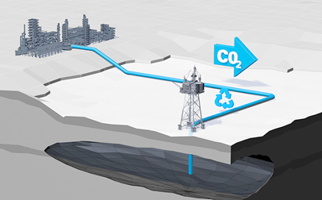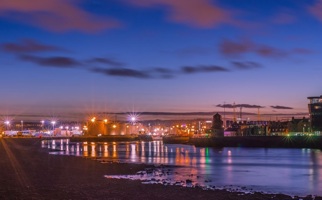
A second group of 132 further blocks has been subjected to detailed assessment under the Conservation of Habitats and Species Regulations 2010, the findings of which are now out for consultation.
Habitats Regulations Assessments of 14th onshore licensing round
Subject to the outcome of that consultation, the OGA will announce offers for the second group of licence blocks later in the year. The licences for all offered blocks will then be granted after the terms and conditions have been finalised.
OGA Chief Executive Andy Samuel said:
“With almost 100 applications received, the 14th Onshore Round has attracted significant interest and high-quality proposed work programmes from a range oil and gas companies. Today’s announcement regarding the offer of 27 blocks gives those successful companies assurance about the blocks that they will be formally offered later in the year.”
UK Energy Minister Lord Bourne said:
“As part of our long-term plan to build a more resilient economy, create jobs and deliver secure energy supplies, we continue to back our onshore oil and gas industry and the safe development of shale gas in the UK. This is why the OGA has moved quickly to confirm the winners of licence blocks which do not need further environmental assessment.
“Keeping the lights on and powering the economy is not negotiable, and these industries will play a key part in providing secure and reliable energy to UK homes and businesses for decades to come.
“It’s important we press on and get shale moving, while maintaining strong environmental controls. Investment in shale could reach £33 billion and support 64,000 jobs creating financial security for hardworking people and their families, whilst providing a cost-efficient bridge to lower-carbon energy use.”
The Habitats consultation, which covers those blocks which do require further environmental assessment, enables the public and other interested parties to submit responses by the end of September. The OGA will then consider the results of the consultation before offering any further blocks.
The 14th Onshore Oil and Gas Licensing Round was launched on 28 July 2014 and closed on 28 October 2014. A total of 95 applications were received from 47 companies covering 295 Ordnance Survey Blocks.
Notes to editors:
-
No licences are being issued today. Successful companies for the 27 blocks are being notified that they are going to be awarded a licence once the HRA for the other sites is completed.
-
A “block” is an area of land, typically 10km x 10km. The Petroleum Exploration and Development Licence (PEDL), granted under the provisions of the Petroleum Act 1998, affords exclusive rights to licensees “to search and bore for and get petroleum” in all the various stages of oil and gas operations – exploration, appraisal, production and abandonment of wells. The PEDL itself does not confer on the licensee any consent, approval or permission to carry out specified development activities – all activities, such as drilling, will necessarily require further consents, including planning permission and environmental permits.
-
Following discussion with prospective licensees, and in accordance with the new devolution settlements set out in the Scotland Bill currently before Parliament and the soon to be introduced Wales Bill, the UK Government has decided that no new PEDLs will be awarded in Scotland or Wales as part of the 14th Round.
-
The announcement today covers 27 blocks that will be formally offered to successful companies in due course, with a further 132 blocks being subject to detailed assessment and consultation under the Conservation of Habitats and Species Regulations 2010. Under those Regulations, a competent authority may agree to a plan or project only if it will not adversely affect the environmental integrity of protected European sites. The public consultation stage of the Habitats assessment for the 14th Onshore Round commences today and will close at the end of September. The licences for all offered blocks will then be granted after the terms and conditions have been finalised.
-
Applicants’ technical analysis and work programme are assessed against a published marks scheme. Only companies with the necessary financial, technical and environmental competency are considered for award and each application must be support by evidence that the applicant meets the criteria.


